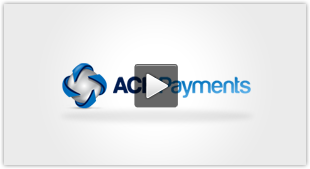https://www.pexels.com/photo/man-and-man-inside-shop-1724199/
As business owners approach their golden years, financial strategies become crucial for sustaining both their livelihoods and legacies. Aging doesn’t merely bring wisdom; it also ushers in a host of unique considerations in tax planning and money management. Among these, the strategies surrounding tax payments and the use of Automated Clearing House (ACH) payment solutions stand out for their potential to streamline financial operations and optimize tax efficiency. For seniors who have spent a lifetime building their enterprises, understanding how to adapt these financial mechanisms to their changing needs is not just beneficial—it’s essential.
In this post, we’ll explore tailored approaches that aging business owners can employ to maximize their financial well-being while minimizing unnecessary fiscal strain.
1. Harnessing ACH For Streamlined Tax Payments
As an aging business owner, it’s paramount to ensure that your tax payment is managed efficiently and securely. Enter ACH—a payment system that electronically transfers funds between bank accounts, reducing the need for paper checks and manual processing. By utilizing ACH for tax payments, seniors can enjoy the convenience of automated transactions, ensuring that critical tax deadlines are never missed.
Moreover, this method often reduces processing fees and eliminates the risk of lost or stolen checks, making it a secure and cost-effective solution for managing tax obligations.
2. Opting For Electronic Filing: A Wise Choice For Seniors
Another advantage of the digital age is electronic filing (e-filing) of taxes. E-filing is not only environmentally friendly, but it also leads to faster processing times and quicker refunds. For seniors, particularly those with mobility issues or those who winter in warmer climates away from their primary residences, the convenience of e-filing cannot be overstated.
Additionally, the IRS typically processes e-filed returns more quickly than paper returns, meaning business owners can expect to receive refunds or communicate about any issues more rapidly.
3. Retirement Planning And Tax Deferral Strategies
Aging business owners should give particular thought to how they can use retirement plans to defer taxes and secure their financial future. Traditional options like 401(k)s and IRAs allow for tax-deferred growth of investments.
More so, contributions to these plans can reduce current taxable income, potentially placing an individual in a lower tax bracket. It’s a two-pronged approach: save for retirement while saving on taxes. Seniors should consult with financial advisors to explore which retirement plans best align with their business structures and personal goals.
4. Estate Planning And Succession: Preparing For Tomorrow
A key aspect of financial planning for the senior business owner is considering the future of their business after retirement or in the event of their passing. Proper estate planning ensures that there’s a smooth transition, whether it’s to family members or a new owner. This process can also provide significant tax advantages, as well as peace of mind.
Crafting a sound succession plan, with the assistance of legal and financial advisors, can minimize estate taxes and help preserve the value of the business for future generations.
5. Taking Advantage Of Tax Credits And Deductions
It’s important not to overlook potential tax credits and deductions that can substantially lower tax liabilities. As a senior business owner, you may qualify for additional tax breaks, especially if you have increased medical expenses or are investing in accessibility modifications for your business.
Keep meticulous records and stay informed about tax code changes that might affect your business. Working with a tax professional who understands the nuances of tax planning for seniors can be particularly advantageous.
6. Navigating Health Care Costs And HSAs
Health care costs often increase with age, so it’s prudent to explore Health Savings Accounts (HSAs) or similar vehicles to manage these expenses efficiently. Contributions to HSAs are tax-deductible, and funds can be withdrawn tax-free for qualifying medical expenses. This can represent a significant tax-saving strategy for senior business owners, while also ensuring they can cover out-of-pocket medical costs.
7. Leveraging Technology For Financial Management
Finally, embracing technology can significantly aid in managing the financial aspects of a business, especially for seniors who may face challenges such as reduced mobility or health issues. Today’s accounting software can integrate ACH payments, facilitate tax preparation, and even aid in estate planning. Leveraging these tools can streamline financial management and help aging business owners maintain a clear picture of their financial health.
Conclusion
In the autumn years of entrepreneurship, effective tax planning and embracing ACH payment solutions can be pivotal in preserving the financial fruits of a life’s work. Aging business owners have at their disposal a suite of strategies that can facilitate a more secure and prosperous retirement.
By implementing these tactics, seniors can navigate the complexities of taxes and payments with confidence, ensuring they can enjoy the legacy they’ve built with fewer financial worries. Whether it’s through leveraging technology for simplified payments, or engaging in savvy tax planning, the end goal remains consistent: a stable and secure financial future.








